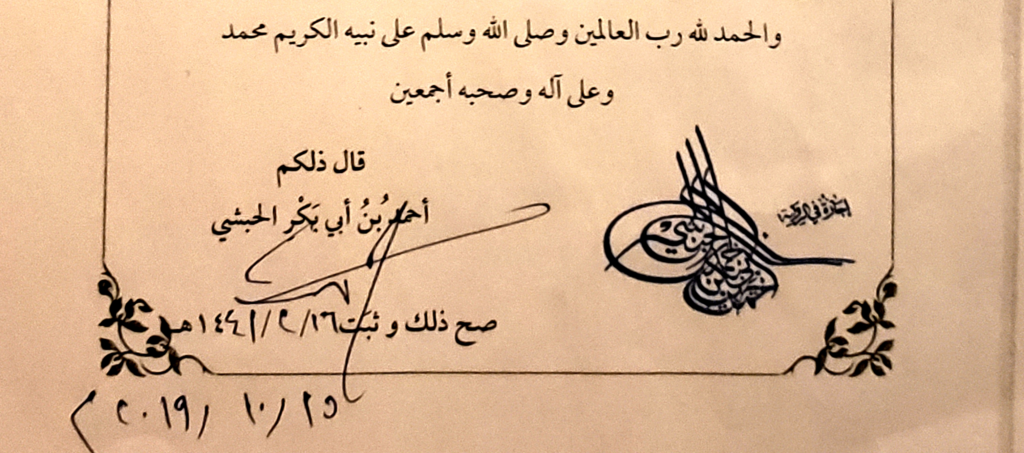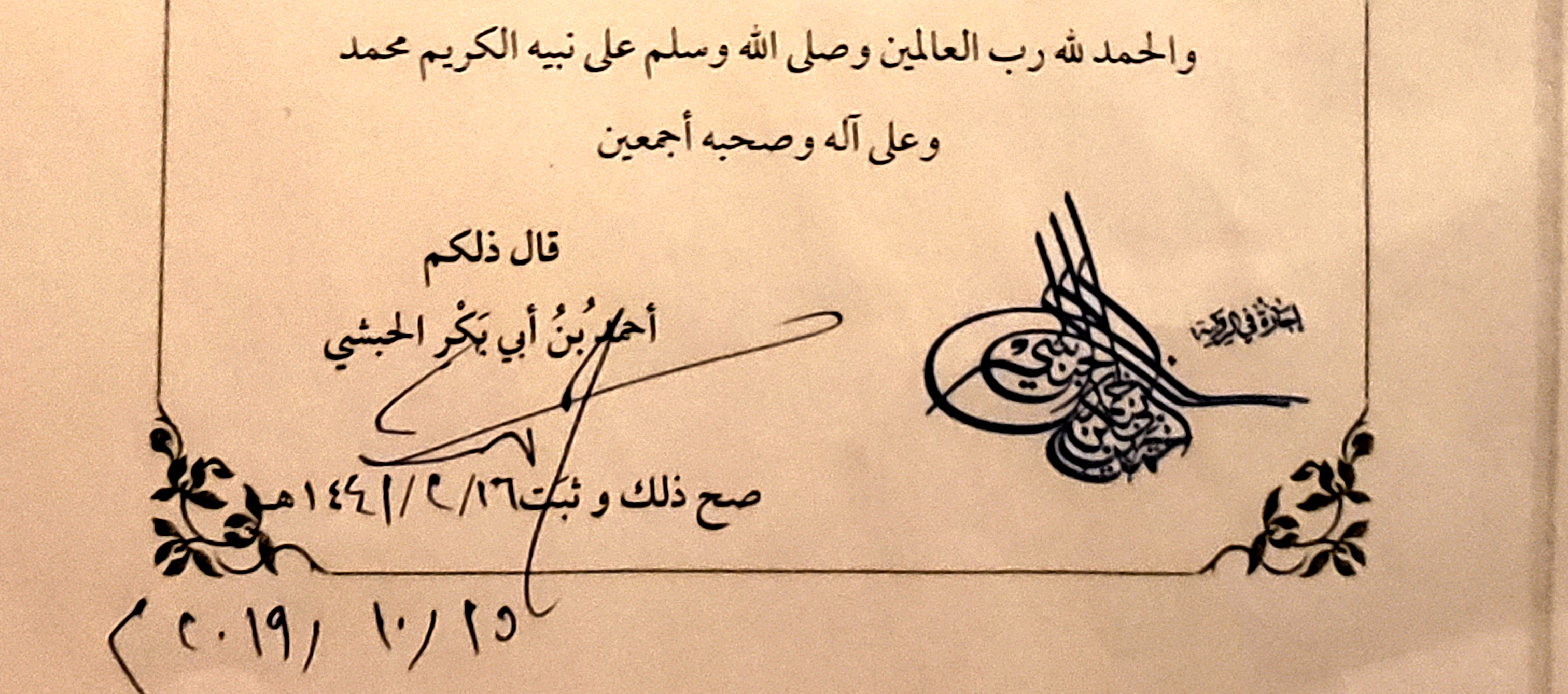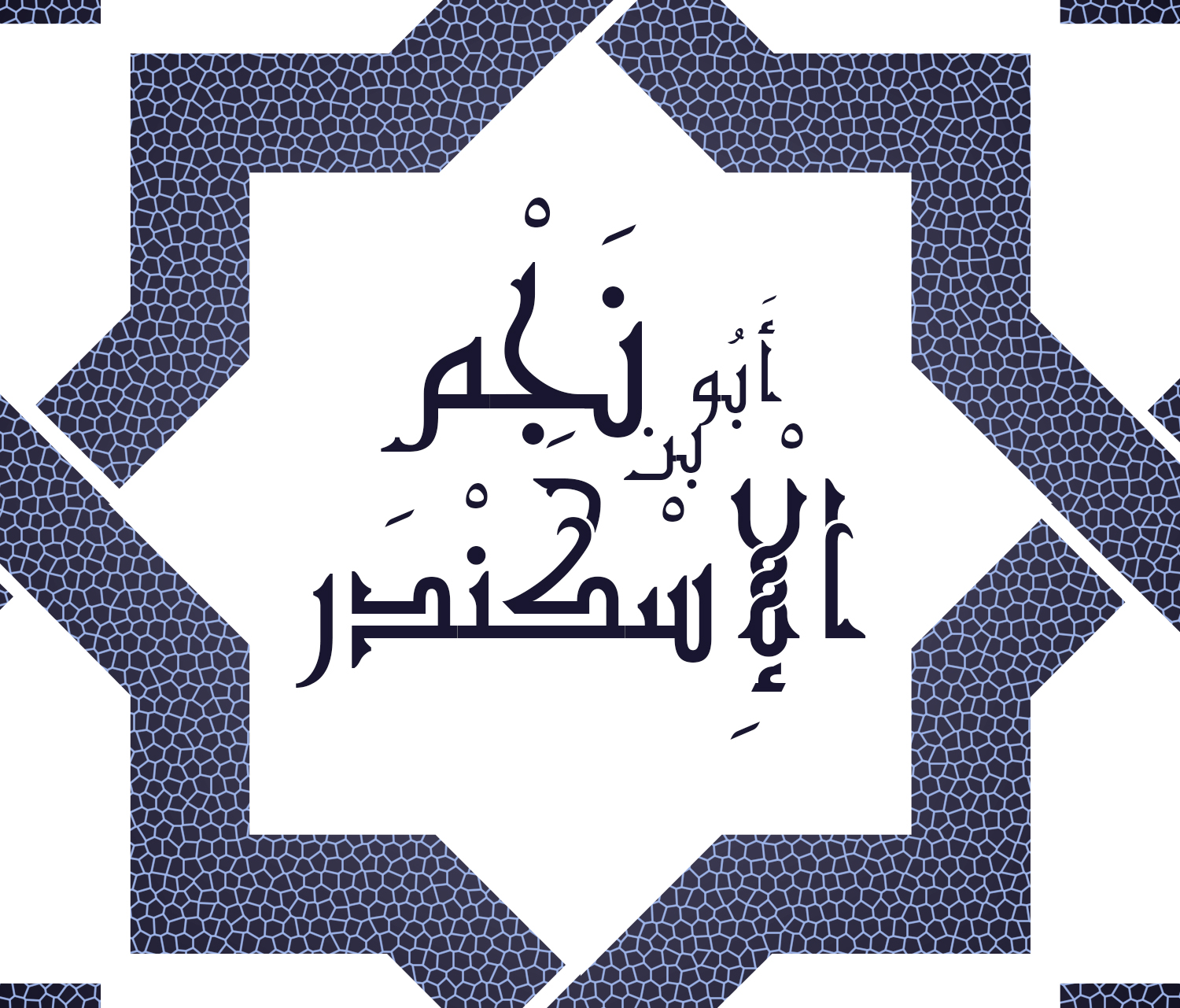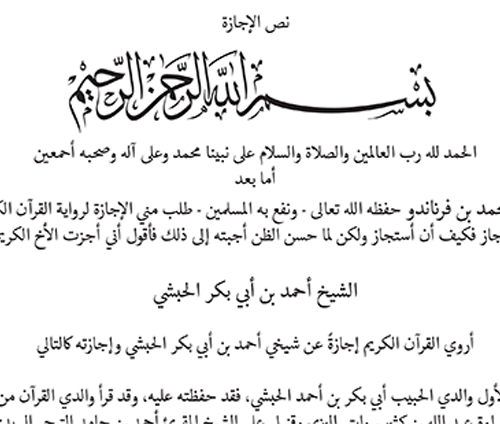On the issue of transmitting books by way of ‘Ijāzah from a Shaykh that the Mujāz [person receiving the ‘Ijāzah] has not read to nor has the Shaykh read to him:

Al-‘Imām al-Hāfiẓ al-Mu`ammar ‘Abū `Umar Yūsuf bin `Abd Allah ‘Ibn `Abd al-Barr [d. 463AH] may Allah have mercy on him, in his book Compilation for the Clarification of Knowledge, on authority of `Ubayd Allah bin `Umar al-`Umarī, he said:
I was watching az-Zuhrī when a man came to him with a book that [the man] did not recite to [az-Zuhrī] and [az-Zuhrī] did not recite to [the man].
[The man] said to [az-Zuhrī]:
“May I transmit it from you?”
[Az-Zuhrī] said: “Yes.”
‘Ibn `Abd al-Barr commented on this and said:
“This is what it means- [az-Zuhrī] knew the book on sight; he knew of the trustworthiness of the one who possessed it; and he knew that [what it contained] was his narrations. This is considered “direct transmission”, or al-Munāwalah. Also, included in its meaning is that when the ‘Ijāzah is sound it involves that.”
[See 2/1155]
Note: Al-Munāwalah, or “direct transmission”, is the best and highest form of ‘Ijāzah.”
On the issue of the importance of the reliability of what is transmitted as opposed to actually reciting or reading to the Shaykh:
‘Abū Yaḥyā Zakariyyā bin Yaḥyā as-Sājī mentioned, on authority of Ḥusayn al-Karābīsī, he said: Upon the second arrival of ash-Shāfi`ī, meaning in Baghdad, I visited him and said to him:
“Will you grant me permission to recite some books to you.”
He refused and said to me:
“Az-Za`faranī has copied the books. So, transcribe them- for I have granted you ‘Ijāzah for them.” Thus, I took [those books] by way of ‘Ijāzah.”
‘Ibn `Abd al-Barr said: “The reports about this topic are numerous saying something similar to what we mentioned. So, I think that brevity is better than lengthiness. Scholars differed regarding the ‘Ijāzah. Some people allowed it and others disliked it.”
“What we mentioned on this topic is proof of its permissibility when the thing authorized is specific and known, preserved, verified; and the one who obtains it is knowledgeable in the pathways of this matter.”
“And if the situation is not as I described, it is not safe from him narrating that for which he has been authorized from the Shaykh adding something not from [the Shaykh’s] narrations. I have seen people fall into the likes of this. I do not believe that those who disliked the practice of ‘Ijāzah disliked it except for this reason.”
Then, he said:
“In summary of this topic, the ‘Ijāzah is not allowed except for the one who is skilled in the craft [of ‘Ijāzah], adept in it, knowing how to handle it; and [except] that it be for something specific, known, where its chain is not dubious- this is what is correct from the opinions about it. And Allah is most knowledgeable.”
There are some Mashayikh, starting from the time of the Salaf, who disapproved and disliked transmitting knowledge except by way of reading to a Shaykh or having him read to the Mujāz.
However, the majority of scholars, especially after a certain point in history, approved of granting an ‘Ijāzah based on the reliability of the specified book/transcript and the ability of the person authorized. The criteria can differ from Shaykh to Shaykh with some being much more strict than others.
In addition, it is disingenuous to apply rigorous standards to the matter inconsistently and side with a minority view on the matter in order to open up pathways for insulting and personally attacking the character and integrity of others.


